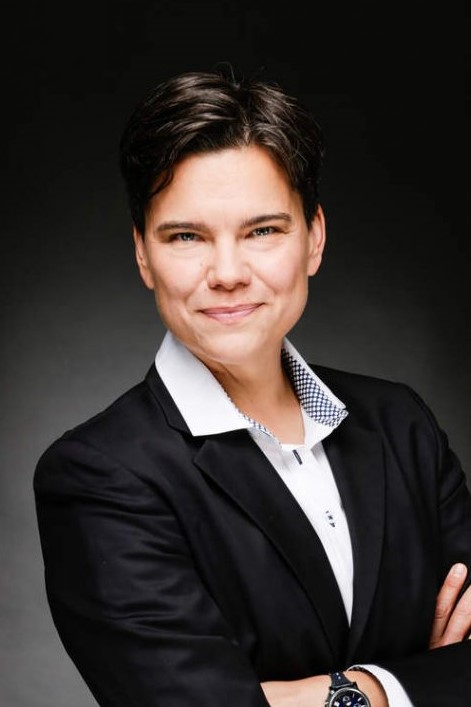
A talk with… Patricia Schaller
“An employee performs better when he feels safe and accepted and he can put all his energy into work and not into hiding.”
You speak up for the visibility of lesbians, in the jury of the OUT EXETUIVES, as well as in other places, like the Wirtschaftsweiber. Why is the glass ceiling in professional life particularly thick for lesbians?
Patricia Schaller: Lesbian women hit the glass ceiling in their working life in a double sense: as a woman and as a lesbian. Firstly, women are still underrepresented in management levels, and there is a tough battle for binding legal quotas at all levels. Secondly, the new edition of the study “Out im Office?!” shows that 30.5 percent of LGBT* persons still conceal their own sexual identity at work. This is an energy-intensive game of hide-and-seek, to the detriment of both sides, employees and companies.
How can companies create an environment in which people with a LGBT*IQ background feel safe?
Patricia Schaller: With a professional Diversity Management, that is anchored deeply in the organisation, role models and supporters from the highest management levels and a clear positioning for diversity in internal and external communication.
And how dies this pay off in terms of the performance of both individuals and the company?
Patricia Schaller: Diversity pays off. An employee performs better when he feels safe and accepted and he can put all his energy into work and not into hiding.

A talk with… Patricia Schaller
“An employee performs better when he feels safe and accepted and he can put all his energy into work and not into hiding.”
You speak up for the visibility of lesbians, in the jury of the OUT EXETUIVES, as well as in other places, like the Wirtschaftsweiber. Why is the glass ceiling in professional life particularly thick for lesbians?
Patricia Schaller: Lesbian women hit the glass ceiling in their working life in a double sense: as a woman and as a lesbian. Firstly, women are still underrepresented in management levels, and there is a tough battle for binding legal quotas at all levels. Secondly, the new edition of the study “Out im Office?!” shows that 30.5 percent of LGBT* persons still conceal their own sexual identity at work. This is an energy-intensive game of hide-and-seek, to the detriment of both sides, employees and companies.
How can companies create an environment in which people with a LGBT*IQ background feel safe?
Patricia Schaller: With a professional Diversity Management, that is anchored deeply in the organisation, role models and supporters from the highest management levels and a clear positioning for diversity in internal and external communication.
And how dies this pay off in terms of the performance of both individuals and the company?
Patricia Schaller: Diversity pays off. An employee performs better when he feels safe and accepted and he can put all his energy into work and not into hiding.

A talk with… Patricia Schaller
“An employee performs better when he feels safe and accepted and he can put all his energy into work and not into hiding.”
You speak up for the visibility of lesbians, in the jury of the OUT EXETUIVES, as well as in other places, like the Wirtschaftsweiber. Why is the glass ceiling in professional life particularly thick for lesbians?
Patricia Schaller: Lesbian women hit the glass ceiling in their working life in a double sense: as a woman and as a lesbian. Firstly, women are still underrepresented in management levels, and there is a tough battle for binding legal quotas at all levels. Secondly, the new edition of the study “Out im Office?!” shows that 30.5 percent of LGBT* persons still conceal their own sexual identity at work. This is an energy-intensive game of hide-and-seek, to the detriment of both sides, employees and companies.
How can companies create an environment in which people with a LGBT*IQ background feel safe?
Patricia Schaller: With a professional Diversity Management, that is anchored deeply in the organisation, role models and supporters from the highest management levels and a clear positioning for diversity in internal and external communication.
And how dies this pay off in terms of the performance of both individuals and the company?
Patricia Schaller: Diversity pays off. An employee performs better when he feels safe and accepted and he can put all his energy into work and not into hiding.
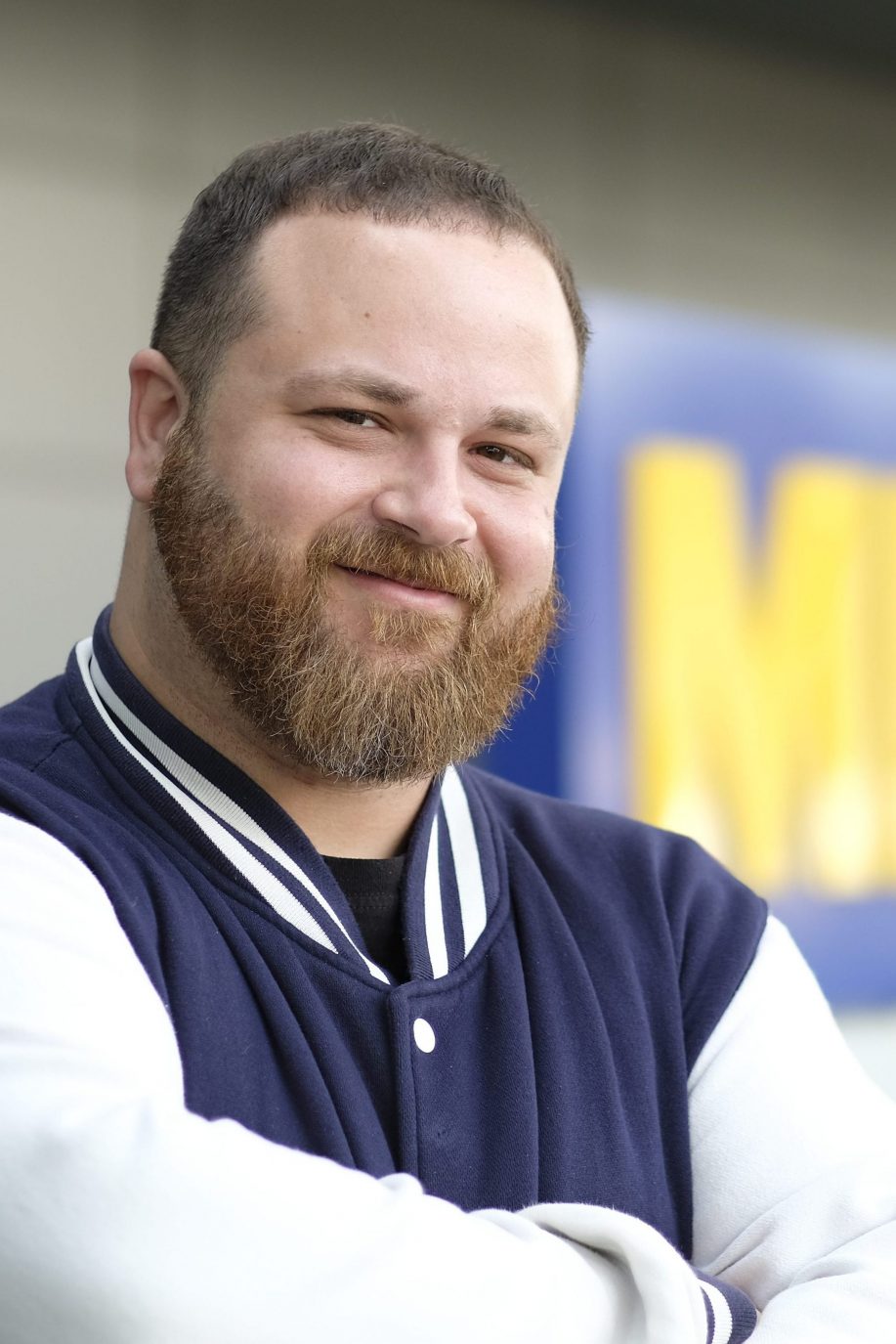
First place, GERMANY’S TOP 50 LGBT+ Voices 2020
“I want to maintain a daily dialogue about LGBT+ because unconscious bias is something that affects everyone. The more visibility I can give the subject, the more we will become aware of our unconscious thoughts.”
After studying logistics management, Nikita Baranov began his career in the commerce sector and was responsible for external IT partners and innovations at METRO AG from 2015 to 2020. He has been Executive Assistant to the CHRO since July 2020. In addition, as a spokesperson for the LGBT+ employee network METRO Pride and a core member of the women’s network WiT, Nikita promotes cultural change in order to make workplaces even more open.
Why are you involved in this topic at work?
Nikita Baranov: I want anyone who works for us or with us not to have to ask themselves the energy-sapping questions “Should I come out?” and “How much should I reveal about myself?” – I want them to be able to be who they are, with their entire identity. To come to work without having to fear being harassed, bullied or discriminated against just because of who they are. Not only to be diverse and integrated, but also to have a feeling of belonging.
What responses do you get to this?
Nikita Baranov: I get positive responses to my involvement, but I also notice that the topic of LGBT+ is not always considered an integral part of Diversity & Inclusion by all employees. That’s why we need to continually raise people’s awareness because only a diverse workforce can meet our goal of producing creative and innovative solutions for our equally diverse customers.
What can we all achieve by getting involved in LGBT*IQ networks?
Nikita Baranov: I’m convinced that only by joining forces will we manage to eliminate discrimination at work in order to promote equal rights. Networks help us increase visibility, and company-wide projects have a bigger reach and significance. One thing is certain: we’re all fighting for a common cause, and alliances can only be beneficial.
Since July, you have been Executive Assistant to the Chief Human Resources Officer at METRO AG – will this enable you to make LGBT*IQ topics even more visible?
Nikita Baranov: Above all, I firmly believe that, regardless of role or position, everyone has a voice and a platform that they should use to promote LGBT+ topics. As LGBT+ diversity is a key part of our corporate culture, I’m happy to be able to make the topic even more visible.
You’re often seen with a rainbow – what does it mean to you to be out and visible?
Nikita Baranov: I want to maintain a daily dialogue about LGBT+ because unconscious bias is something that affects everyone. The more visibility I can give the subject, the more we will become aware of our unconscious thoughts. Being out at work and not having to hide my identity is a prerequisite for showing myself as a whole person and performing at my best.
The interview was conducted as part of GERMANY’S TOP 100 OUT EXECUTIVES. This list is a joint project with the UHLALA Group and is now available online.
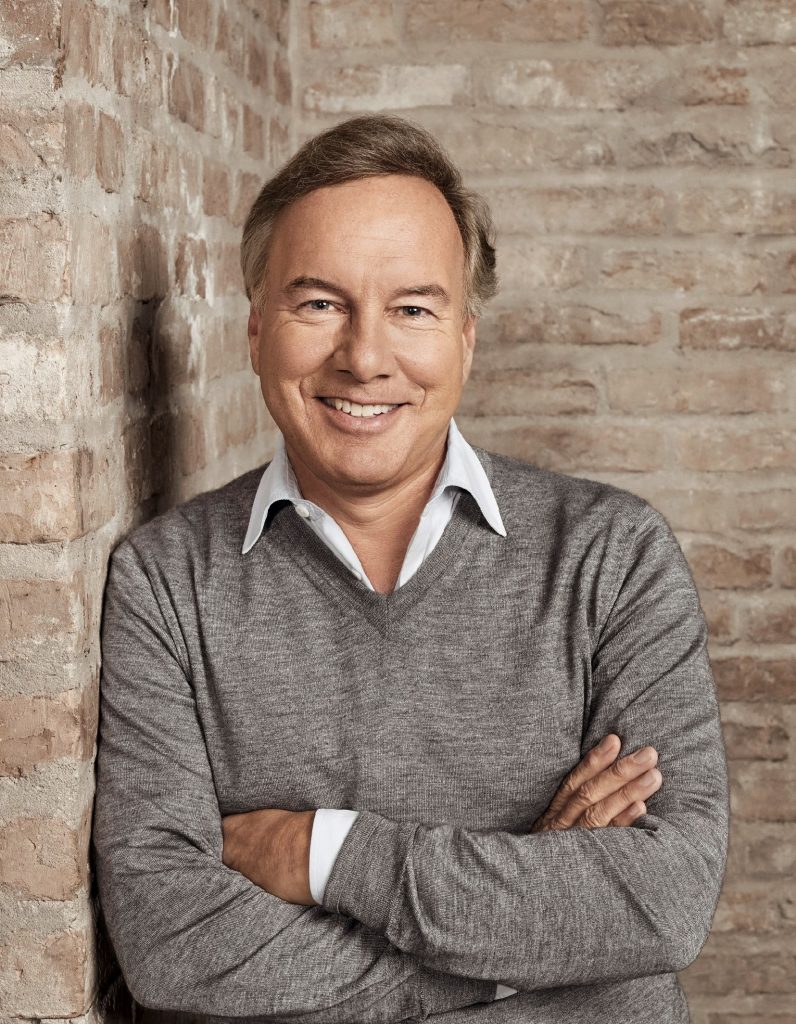
First place, GERMANY’S TOP 100 OUT EXECUTIVES 2020
“Managers shape a company’s culture. The more openly we practice diversity, the more open our dealings with each other become.”
Nico Hofmann, who was born in Heidelberg in 1959, is one of Germany’s leading film and television producers and CEO of UFA. He has been responsible for some of the most successful films and series of the past two decades. Together with Bernd Eichinger, Nico Hofmann launched the young talent award FIRST STEPS in 1999. He has won numerous national and international awards for his work as a director and producer.
Nico Hofmann, many congratulations on being ranked no. 1 in GERMANY’S TOP 100 OUT EXECUTIVES list. You were already on the list last year – what responses did you receive as a result of that?
Nico Hofmann: Thanks! I’m delighted, although I see the list of Out Executives as more of a platform for dialogue than just a ranking. After I was ranked 12th last year, I was able to create lots of contacts with other colleagues from the list. That’s very valuable. It’s important to make diversity visible and the Out Executives list is a very interesting way of doing that.
Being out at work – what does that mean in a leadership position?
Nico Hofmann: Managers shape a company’s culture, so the significance shouldn’t be underestimated. However, the need for diversity and the energy come primarily also from the employees themselves. The younger generation in particular are making very strong calls for this – something we have a keen sense of at UFA. The company has changed in the past five years, becoming much more female and much younger. And the more openly we practice diversity, the more open our dealings with each other become. Today we discuss things differently and cast roles differently as well. UFA’s parent group Bertelsmann has the be.queer network, which we became part of by creating be.queer@UFA. Here, too, a lot of the initiative stemmed from our employees.
Nevertheless, the German film industry in particular could still do a lot more about diversity. How do you see your own role here?
Nico Hofmann: I very clearly have a political agenda. I appear in the media and talk about the subject. Germany is about five years behind the USA in this area, but things are moving. Together with the media industry magazine DWDL.de, we had planned to hold a diversity summit for the film industry in Cologne this year. Unfortunately, it had to be cancelled due to the coronavirus pandemic. But the summit will take place next year because the demand for it was very strong. The major channels had confirmed their attendance, the tickets were quickly sold out and big names were set to appear on the panels – that tells me how topical the subject is for the film industry.
LGBT*IQ people still barely feature in German film and television productions, and when they do, they often have very clichéd roles. What is being done to change this?
Nico Hofmann: Diversity has long been visible in our daily dramas such as “GZSZ” (“Good Times, Bad Times”), and we have currently begun filming our queer series “All You Need” for the public channel ARD – this wouldn’t have happened a few years ago. If we show LGBT*IQ people as a perfectly normal part of films and series without turning them into victims or resorting to clichés, my hope is that, in society as a whole, they can develop their own self-identity because this has become an entirely natural thing to do.
What’s more, today we have a different generation of creatives. I teach at the Film Academy in Ludwigsburg and some of my best students there are from minority ethnic groups and approach topics in a completely different way. I’ve also had the opportunity to support the development of several transgender students at the Film Academy and I’m seeing a generation come through that has a very strong need for diversity.
The interview was conducted as part of GERMANY’S TOP 100 OUT EXECUTIVES. This list is a joint project with the UHLALA Group and is now available online.

A talk with… Patricia Schaller
“An employee performs better when he feels safe and accepted and he can put all his energy into work and not into hiding.”
Nikita, congratulations on you birthday also from our side. Why os a donation campaign for the PROUT AT WORK-Foundation so important right now, in times of crisis?
The answer to crises lies in togetherness – precisely because of the physical distance we experience in everyday life, it is all the more important that we move closer as a community. Of course, this also applies to our working environments. One thing is clear, we will all work together differently in the future, and the Foundation is working tirelessly to achieve this: For a working world that stands for more diversity and inclusion – detached from sexual orientation, origin, religion and identity.
What is the added value of PROUT AT WORK for you as a person?
Without the long-standing support of PROUT AT WORK, METROPride, our network for LGBT+ employees and allies, would not be where it is today. The numerous formats that PROUT AT WORK offers – from guidebooks to awareness training for all levels in the company to important networking with other company networks, politicians and associations – have enabled us to sustainably anchor the topic of LGBT+ diversity within METRO and to constantly expand it.
“One thing is clear, we will all work together differently in the future, and the Foundation is working tirelessly to achieve this.”
What can each individual do to help PROUT AT WORK not just during this time?
Everyone can use PROUT AT WORK’s analog and digital offerings to promote a discrimination-free workplace and more diversity in their company. Especially now, in a time where a lot of conversation only takes place via digital channels, an appreciative environment and mindfulness is more important than ever. In order to promote dialogue and raise awareness of these issues, the Foundation relies on all the support it can get.
Thank you for your time and the idea on Facebook!
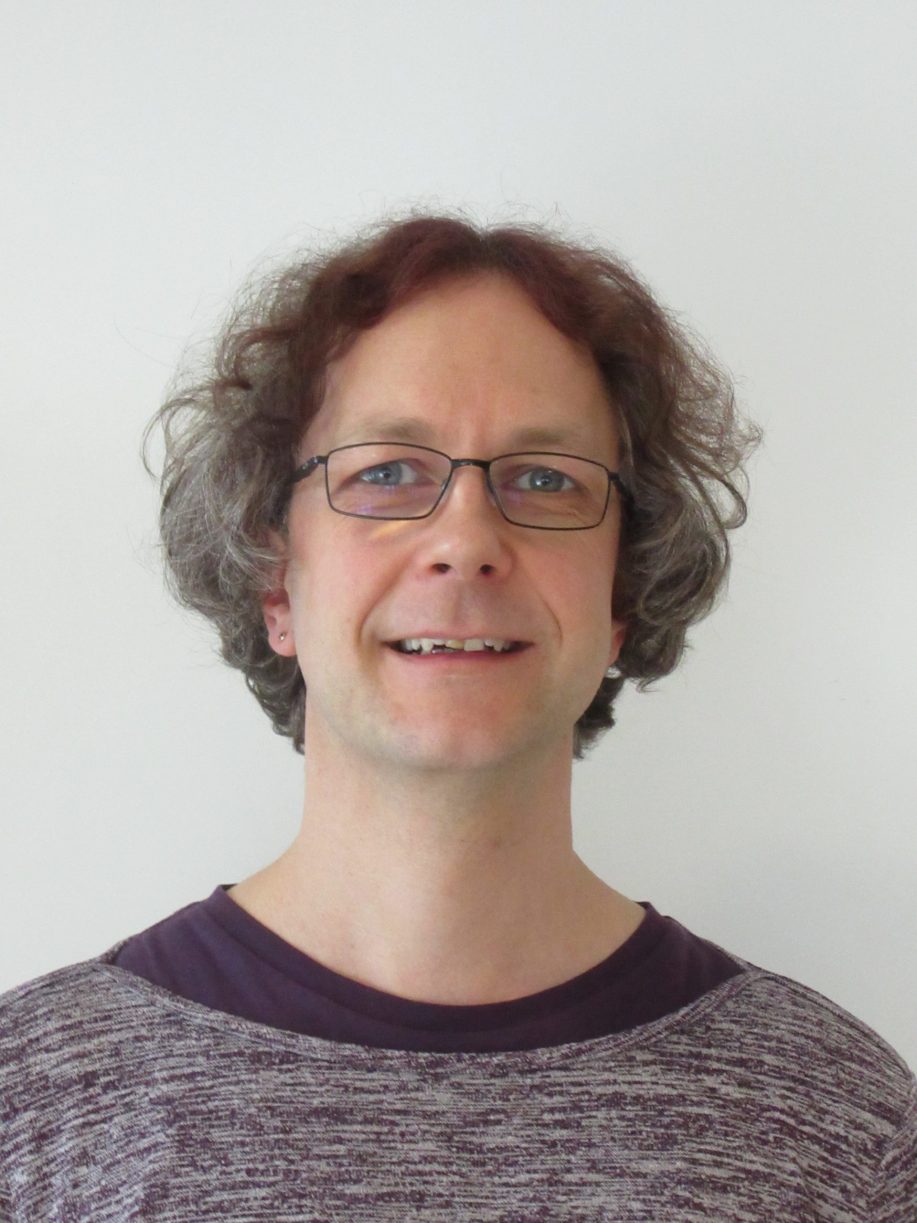
A talk with… Nils_Séline “Nica” Schächtele
“Let’s be as courageous as possible. Intersexuality is still a big taboo topic.”
Nils_Séline “Nica” Schächtele was born in Freiburg im Breisgau and studied electrical engineering and information technology at Karlsruhe Institute of Technology. Both before and while studying this subject, Nica was interested in professional sound and acoustic engineering. In 2002, the next stop on Nica’s journey was Straubing, where Nica joined EVI Audio GmbH (a subsidiary of Bosch’s Building Technologies business unit since 2006) as a systems test engineer.
You refer to yourself as “divers” (non-binary). What experiences have you had at Bosch with this identity?
Nils_Séline “Nica” Schächtele: DIVERSITY has been an important topic at Bosch for some years now. I have always liked the term “divers” very much because I have intersex as well as transgender-androgynous and bigender characteristics, and “divers” covers all of them. The change in the law creating the third gender option in Germany has really pushed things forward simultaneously for Bosch and for me. This year, we started to take many diverse steps together and to have lively discussions – a win-win situation for all of us. Sometimes, I jokingly refer to myself as “Bosch’s token non-binary person”. The feedback from my colleagues at the office was cautiously positive, and I got a lot of respect for being open about my gender. There was also a bit of confusion, in particular due to my two additional first names Séline and Nica. If I brought up this subject myself, the question I heard most frequently was: “Can I still call you Nils?” – which I’m OK with.
What does it mean to you to be an intersex person in our society?
Nils_Séline “Nica” Schächtele: It means belonging to a tabooed minority that is largely invisible. Sometimes I feel like we’re aliens from a Science Fiction movie: “So people like that actually exist?” “Yes, they do!!” Noticing that someone has both typically female and typically male characteristics, or finding out more details about this, or even realising that someone doesn’t fit into any traditional category, makes many people uneasy. It doesn’t match the binary view of the world that is instilled in us. It takes a lot of patience and stamina to overcome this hurdle.
“However, the biggest challenge is, and continues to be, plucking up the courage to speak openly to others.”
When did you come out in your workplace? And what challenges did this pose at your company and with your colleagues?
Nils_Séline “Nica” Schächtele: I began to come out at Bosch during a telephone call with Olaf Schreiber – the spokesperson for the company’s LGBTIQ network RBg – and then in a telephone call about the “third gender option” with Anja Hormann from the central Bosch Diversity Team. After that, I gradually informed my direct colleagues at the office, my carpool group, my supervisor and the local HR department. A wonderful video made by colleagues for colleagues on IDAHOBIT inspired me to have my first name changed to Nils_Séline in the internal company address book. It is written with the so-called “Gender_Gap” to visualise the gender continuum between male and female. I dedicated my first blog entry in the internal network to this subject and sometimes I was moved to tears by the approval I received from all over the world. On Diversity Day, our office organised a Diversity Business Lunch which I attended and where I was able to talk about non-binary gender aspects with those present. Generally, I was pleasantly surprised at how much good will and appreciation were shown to me at all levels. However, the biggest challenge is, and continues to be, plucking up the courage to speak openly to others. Not to mention the IT side, where the only options you have in many areas are male and female.
What advice would you give to intersex people planning to come out?
Nils_Séline “Nica” Schächtele: Take it slowly – small steps are best, so give yourself time. Coming out as an intersex person requires a great deal of care and courage. Things can quickly take a wrong turn. I recommend beginning with people who are not quite so close to you. After a bit of practice, you’ll find it easier to talk to your family and close friends. And get in touch with LGBTIQ allies – they’re open-minded and make very good listeners. Talking to allies will make you feel better and boost your self-confidence.
“I’d like this to be matched by a more relaxed approach – as if you’re talking about the weather or what you’re going to cook for dinner.”
What are your hopes with regard to the visibility of intersex persons in particular and the LGBTIQ Community in general at your company?
Nils_Séline “Nica” Schächtele: Let’s be as courageous as possible. Intersexuality is still a big taboo topic. In many places, we as a society have yet to take a clear stand against hastily begun hormonal treatment or surgery which is not medically necessary. The few who are open about their identity are inundated with letters and requests from all sides. But there are other important topics, too. That’s why I’d like to see many people – in particular many allies – spread the message that the human body doesn’t just develop into a man or a woman and that gender actually covers a broad spectrum. I’d like this to be matched by a more relaxed approach – as if you’re talking about the weather or what you’re going to cook for dinner. I experienced this on Stuttgart’s commuter trains recently and it worked really well. As regards our LGBTIQ Community at Bosch, I hope that many people will join us in the years to come, the proportion of allies will grow steadily, and gender diversity will gain an even higher profile. This applies to intersex, transgender and queer identities topics of any kind.

A talk with… Katharina Reimann
“It feels like I come out on a recurring basis, because many people think, „Oh, she’s just going through a lesbian or heterosexual or whatever phase“
Katharina Reimann is a self-employed goldsmith. After stints in Hamburg, Hanau and Trier she now lives and works in Vienna. Not long ago she decided to go it alone and, together with a jewellery designer friend, opened her own workshop.
You identify as a bisexual woman – what does that mean to you?
Katharina Reimann: Perhaps I wouldn’t describe myself as bisexual so much as maybe even pansexual? That’s because to me, sexual attraction is person-specific, not gender-specific. I’ve known this from a very early age, and have communicated it without feeling any shame.
Tell us about how you came out.
Katharina Reimann: It feels like I come out on a recurring basis, because many people think, “Oh, she’s just going through a lesbian or heterosexual or whatever phase”, just because they happen to run into me in the company of a person they think of as male or female. That’s why I have to keep explaining my sexual orientation. Sometimes I think that for the people I see on a regular basis to “believe” my sexual orientation, I’d have to have a polyamorous relationship with at least two trans* people, a cis woman and a heterosexual cis man.
“What I frequently encounter in everyday life is the cliché of infidelity.”
What kind of questions and clichés with regard to bisexual people come your way in everyday life?
Katharina Reimann: What I frequently encounter in everyday life is the cliché of infidelity. Since I supposedly have more options theoretically (another cliché I hate), many people think I’m fickle and more likely to cheat. What I also get a lot is people saying I’m only with women because it turns men on… “Really?!”, I think to myself. That’s just nonsense. Sadly, I don’t get a lot of questions. I’d rather be asked questions than repeatedly have to defend myself against prejudices.
So far, what actual experiences have you had after coming out as a bisexual woman in the workplace?
Katharina Reimann: I’ve worked for a living in many different environments, and my experience has been that in academia and in the arts, sexual orientation has little to no relevance. But in my side job in the restaurant industry I’ve never come out, because I’ve experienced and seen a lot of sexual intrusiveness in that sector, and never felt safe.
“Create safe spaces for yourselves, get involved in a network, for example.”
What’s your advice to people who are about to come out (in the workplace)?
Katharina Reimann: Since I’ve only ever come out in situations in which I felt comfortable and safe and that I was being taken seriously, even though I’m generally a very open person, I would say: create safe spaces for yourselves, get involved in a network, for example. Check out what anti-discrimination structures there are in your company. How much about your private life do you reveal to your colleagues? What are your needs? Do you need professional support, for example? Do you perhaps want to work to actively change the social structure of your workplace? Knowing the answers to these questions often helps you to make good decisions for yourself.
In your opinion, what can and should companies do to raise the visibility of LGBTIQ topics in the workplace?
Katharina Reimann: Generally speaking, companies should pay attention to social interaction. Offer continuing education courses that strengthen the community. Refuse to allow any kind of discrimination. Harassment or discrimination or malicious gossip against colleagues should be grounds for termination, and that should be openly communicated. Equal opportunities officers should be the rule and should have far-reaching veto rights. Generally, sexualised violence in the workplace should also be addressed and, hopefully, eliminated some day. That’s my hope for an ideal world…
Many thanks for talking to us, Katharina.

A talk with… Maren Borggräfe
“As subjective as they may be, these fears are certainly legitimate.”
Maren Borggräfe, founder and partner of autenticon – consulting in context, supports change processes as a systemic adviser, trainer and coach. The subjects closest to her heart are changing corporate culture and effective communication.
Maren, this is your third year in a row as a trainer at PROUT AT WORK’s “Should I or shouldn’t I” coming out seminar. What is your connection with LGBTIQ and coming out?
Maren Borggräfe: When I was 19, just after I moved from a small town in southern Germany to Berlin to study, I realised I can also fall in love with women – head over heels in love! As I come from a very religious home, this was utterly inconceivable to me up to that point. I viewed homosexuals as sinners who had to strive to get back on the right path. So this was quite a shock – not just for me but especially for my parents! My mother sensed very quickly that something wasn’t quite right, so I felt there was no other way than to come out to my parents relatively fast. After that, fate took its course. My parents disapproved of my “unnatural” tendencies that don’t represent God’s will and they still cannot fully accept my way of life. And that’s despite the fact that, after some twists and turns, I have been with my wife for 14 years and we have two wonderful boys. From personal experience, I know the inner and outer distress that coming out can cause. But I also experienced how taking a close look at yourself helps you mature. It gives me great strength when I fully accept and openly live this part of my personality.
“From personal experience, I know the inner and outer distress that coming out can cause.”
What experiences did you have when you came out?
Maren Borggräfe: Coming out to my family was a rocky road that began with my parents prohibiting me from talking to other people about it – even my own (younger) brothers, which was followed by times when I was completely estranged from my parents, and ended up with me realising to my surprise that support can come from unexpected places. For example, my grandparents and my aunts on my mother’s side were very supportive right from the start, and my grandma on my father’s side reacted surprisingly calmly. Other family members – like my mother – would not come to my wedding. That hurt very much at the time. What helped me was to actively embark on a journey of acceptance with the support of a professional coach – acceptance of myself as well as the people who had, and still have, difficulties accepting me as I am. It was very important for me to realise that everyone is doing their best and that I can’t bring about, let alone force, a change in other people’s attitudes. This brought me inner peace. I was able to reconcile with the rebel in me and thus prepare to get closer to people again, especially my mother.
With very few exceptions, my experiences of coming out to my friends and colleagues were very positive. The more open I am about my way of life, the more open the reactions are too. At work, I took a completely different approach to coming out. As I met my wife there while both of us were still in our probationary periods, we were very careful at first – until someone who we hadn’t actually told asked us whether we were still together. Rumours were going round that we had split up. After that, we no longer thought it necessary to beat about the bush. In fact, hardly anyone was surprised. No wonder! We were so much in love and it’s hard to keep that hidden. When I was introduced as a new joiner at a subsequent employer, I came out in front of everyone by saying that I was politically active in the LGBTI movement as a hobby. Here, too, the reactions were mostly approving and confirmative, although I could sense that I was perceived as being “different” somehow. Since becoming self-employed, I decide based on the situation whether or not to tell project partners and clients about my family. Just like any other heterosexual person relies more or less on gut feeling when choosing to reveal personal information or not.
Why do you think it’s important to come out in the workplace?
Maren Borggräfe: I’m convinced that people are at their most creative, innovative and effective when they feel comfortable in their working environment, trust their colleagues and supervisors and are allowed to show the entirety of their personality. If I’m using up part of my energy hiding some of my personality, it’s like I’m driving with the handbrake on. This is very difficult and draining. Strength that I need to put into my work is going to waste. I’m in a state of permanent inner conflict with myself, which makes it difficult to show people the real me. As humans, we have a very keen sense of when the person in front of us is not behaving coherently. This can be a problem for managers in particular. Apart from the fact that having a secret makes us susceptible to blackmail, we’re constantly walking a tightrope when we present ourselves – as is often necessary in the modern working world. The resulting stress can even make you ill and cause psychosomatic symptoms.
On the other hand, by being open about my identity, I can be a tremendous asset to an organisation and add to its diversity, which – as proved by many studies – is a prerequisite for high-performing teams. I can help shape the culture and pave the way for others to follow my example.
“I would generally like to encourage anyone out there who is still hesitant (and there are many more of them than we think!).”
What would be your advice to LGBT*IQ employees who are afraid that their colleagues will disapprove of them coming out in the workplace?
Maren Borggräfe: As subjective as they may be, these fears are certainly legitimate. Everyone must decide for themselves whether, and if so, when and how they come out. That’s a very important thing for me to say, especially if you have a situation where a company’s diversity management policy portrays coming out as being desirable. The decision to take this step is very personal and may have far-reaching consequences.
I recommend having the courage to seek support. This might be a friend who we trust, a contact person within the company, for example from the LGBTI network if there is one, or a professional coach. PROUT AT WORK regularly holds a seminar entitled “Should I or shouldn’t I? Coming out in the workplace”. Facilitated by experienced trainers, LGBs can share their stories in a protected space, reflect on their experiences of coming out so far, try out new approaches and give each other encouragement in the lead-up to coming out at work. In addition, more and more coaches offer support for the process of coming out. Like me, they frequently come from the LGBTI Community themselves and know from experience what the particular challenges are. There are online pools of LGBTI-friendly coaches that allow people expressing an interest to find a suitable person in their region.
Many people who are about to decide whether to come out in the workplace find it helpful to look at what they have previously experienced when coming out in different situations.. What did I experience? How did I feel? How did others typically react and how did I feel about that? What helped me? What strategies and behaviours helped me cope with difficult situations? Which of them might be useful to me in the current situation? Which ones would I prefer not to use this time and what would I like to do differently?
Employees should also keep themselves well informed, observe their environment and assess the situation realistically: how open is the corporate culture? How are non-business issues generally dealt with? Who is openly LGBTI in the company? What are the risks of coming out? Am I prepared to take them? How important is it to me to come out? What are the benefits? Am I prepared to change my employer if it doesn’t work out?
I would generally like to encourage anyone out there who is still hesitant (and there are many more of them than we think!). Be bold and show yourself. If you are centred and are true to yourself, unexpected paths open up. What you put out there will come back to you!
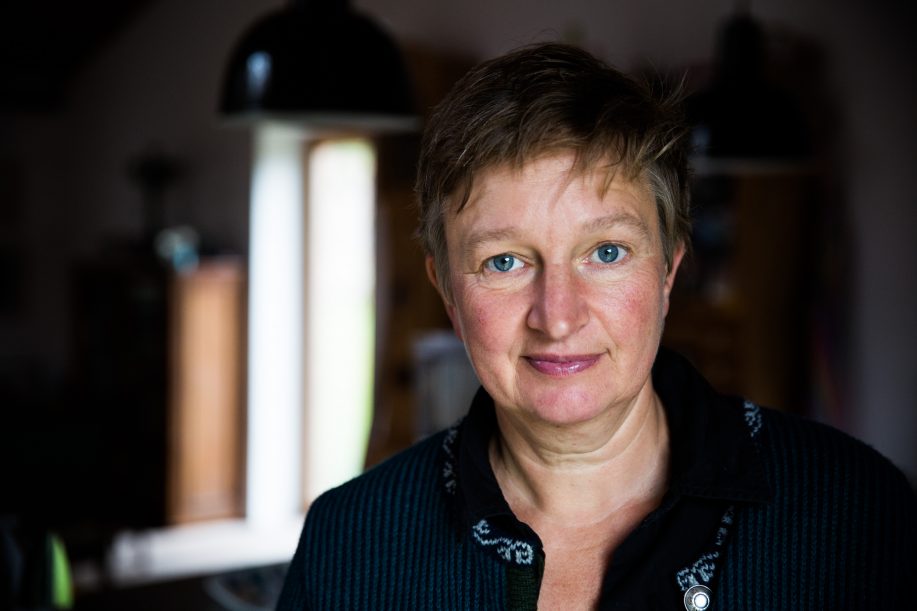
A talk with… Ise Bosch
“Dismantle what’s left of our own prejudices!”
Ise Bosch is the founder and CEO of Dreilinden gGmbH in Hamburg, an organisation that advocates for the rights of lesbian, bi, trans* and inter people, women, and girls, and a co-founder of the women’s foundation filia.die frauenstiftung.
The certified eco investment advisor publicly supports a responsible and sustainable wealth management. In 2003, she and other women founded a network for heiresses, Erbinnen-Netzwerk Pecunia e. V. Her book “Besser spenden! Ein Leitfaden für nachhaltiges Engagement” (“Donating better! A guide to sustainable commitment”) was published by C.H. Beck in 2007, and her book “Geben mit Vertrauen” (“Giving with Trust”) was released in 2018.
In 2017, Ise Bosch received the Transformative Philanthropy Award of the Astraea Lesbian Foundation for Justice in New York City. In 2018, she was awarded the German Female Founders’ Prize.
Ms Bosch, why are you and your organisation Dreilinden advocating for LGBT*IQ people worldwide?
Ise Bosch: The question really should be: Why aren’t more people and institutions advocating for them? LGBTIQ people are among the most at-risk social groups by any measure. Trans women are almost fifty times more likely to be HIV positive than the population average, for example, and hardly anyone makes more suicide attempts than young LGBTQ people. Yet Dreilinden is one of only two foundations in Germany specialising in this field and supporting it internationally. German funding for this cause worldwide – including public subsidies – amounted to a modest 3.1 Mio. Euros in 2016. This includes 684.000 Euros from Dreilinden, which is more than the Ministry for Development is dedicating to the issue.
One of the issues we will discuss at our 2018 PROUT AT WORKconference is the situation of LGBT*IQ people in Russia as well as in Africa and the Arab world. Where do you see differences in working towards equality within the various global regions? Where do you see commonalities?
Ise Bosch: Any answer to this will have to be very general, and there will always be counter examples. But we generally find that cultures with a strong religious influence tend to reject gender diversity – not just Islam, but Catholic and evangelical Christian religions as well. So-called persecutor states with severe legal discrimination up to and including the death penalty for sexual acts between men can mostly be found in formerly colonised countries. The roots of persecution stem from colonial times – their moral laws are often still those of the colonial powers! They are an enormously powerful legacy of missionary work – by us Europeans. Structural social discrimination makes life for queer people just as dangerous as legal discrimination – in particular if a culture is strongly patriarchal, like many societies in the former Eastern Bloc, notably in Russia, Ukraine and the Central Asian republics. And where a society closes itself off and becomes more nationalistic and militaristic, gender binarity is enforced, and that invariably happens at the expense of sexually and gender-diverse people.
In your view, is there a corporate responsibility for LGBT*IQ people worldwide?
Ise Bosch: Of course! For one thing, it is simply part of their responsibility for their employees – whether these belong to the “community” themselves, or their friends or relatives do, or they simply want the freedom to grow as individuals. Companies obviously have an interest in their employees’ wellbeing, not just because productivity will suffer otherwise but simply because of their responsibility as employers. And that means they also have an interest in more liberal laws. The fact that some employees cannot be posted to Singapore because of its discriminating laws is unacceptable. But as long as these laws and social taboos exist, these employees need points of contacts within their companies who can advise them confidentially. To do this, companies must make their support for diversity and their efforts to gain the required expertise very clear. After all, it’s not just about the small number of gay and lesbian people or the even smaller number of trans and inter people, it’s about development opportunities for everyone. Sociology now knows that significantly more people change their sexual orientation during their lifetime than previously assumed.
In a 2016 study, the Center for Talent Innovation stated that companies should not underestimate the influence of their economic power in the struggle for legal equal opportunities for LGBT*IQ people. Where do you see concrete scope for action for globally operating companies?
Ise Bosch: In at least two respects: First of all, they can offer non-discriminatory jobs, and, in case of a conflict, protection. Secondly, they have very special access to local administrations, governments etc. Not just for formal interventions – via their connections as well. Powerful “expatriates” in particular meet people with all kinds of influence and can, or could, provide assistance like almost nobody else. Not just in emergency situations, obviously, but with regards to broadening horizons as well, through their more liberal attitude. Homophobia and transphobia have a strong component of plain ignorance – people aren’t familiar with the issue, they have questions, but they don’t ask them openly because they feel insecure and are afraid of some kind of “contagion”. We have to create situations that allow legitimate questions to be asked, and we need to answer them. Naturally, a face-to-face conversation and a confidential setting are the best way to do this. People with a certain standing are also in a position to change biographies for the better, even if they aren’t part of the “community”.
We live in ambivalent times. In the fourth edition of your Rainbow Philanthropy, you described both a growing understanding that discrimination against LGBT*IQ people is unjust and the fact that their situation is becoming no less, if not more, precarious. What can each of us do individually to make the world a better place for LGBT*IQ people?
Ise Bosch: Dismantle what’s left of our own prejudices! Dare to ask our own critical questions: At what point do I get embarrassed, where do my fears lie? And then speak out publicly regardless. And build real friendships. Personal friendships are an irreplaceable asset in being able to stand up for people who are different with regards to gender or sexuality. And much of it is transferrable, it applies to China just as much as it does to Chemnitz.
What do you think the future holds for the equality of LGBT*IQ human rights?
Ise Bosch: As far as this issue is concerned, globalisation is particularly powerful, and certainly irreversible. People have always expressed themselves diversely with regards to gender – but now it gets captured everywhere across our media and thus becomes visible. I expect a back and forth battle for many, many years to come, between those who feel threatened and fight this diversity, and young people who simply are who they are. However, their tools have become more powerful. I believe that in the not too distant future, “community” and help will be accessible for all gender-diverse people in some way. Even if our democratic systems are currently becoming increasingly precarious – this medial, lived diversity won’t go away. For individuals, this will be a massive step forward compared to now where most young gender-diverse people still believe they are the only ones with this “defect”.
